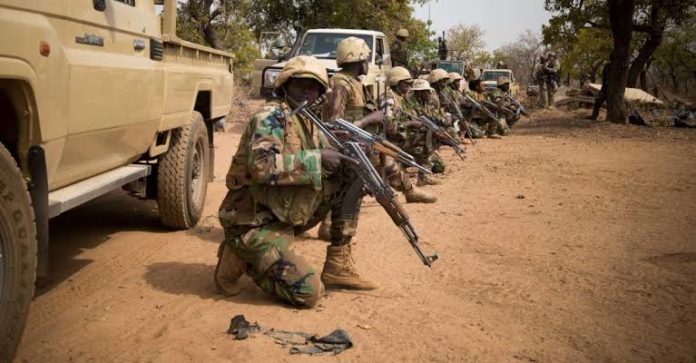Nigerien President Issoufou Mahamadou fired the country’s top security chiefs on Monday, in a move that sent a strong message to citizens about his handling of recent security crisis in the country.
Mr Mahamodou ordered immediate replacement of the chief of army staff, Ahmed Mohamed, days after terrorists killed 89 soldiers on January 9.
Local media initially reported preliminary military account as saying 25 soldiers and 63 terrorists were killed during the firefight at the forward operating base near the border with Mali. The death toll was later updated, putting military casualties at 89 while 77 terrorists were killed.
The attack in Chinagodrar, in the country’s southwest, was the third targeting military asset in a month, leading to at least 160 deaths.
At least 71 soldiers were reportedly killed in attacks on December 10 and 25. Terrorists linked to Al-Qaeda and Islamic State have ramped up attacks in the Sahel in recent months, targeting mainly Niger and Burkina Faso.
Mr Mohamed, a lieutenant-general who has served as the country’s army chief for two years, was replaced by Salifou Modi, a major-general, Nigerien media reported.
The country’s defence secretary and chief of land staff were also fired and immediately replaced, reports said. The president declared a three-day national summit before proceeding on a trip to France for a security summit.
There was no immediate comment from any armed group for the attack, but it bore the markings of the Islamic State, whose Boko Haram affiliate has killed thousands of Nigerian soldiers in multiple attacks since July 2018.
The high death toll of Nigerian soldiers prompted calls for President Muhammadu Buhari, who has sent condolences to Niger over the January 9 attacks, to sack military chiefs, especially army chief Tukur Buratai.
However, attacks on Nigerian military bases have reduced since October 2019, prompting relief that a recent change in counter-insurgency strategy might finally see an end to the 10-year long war.


